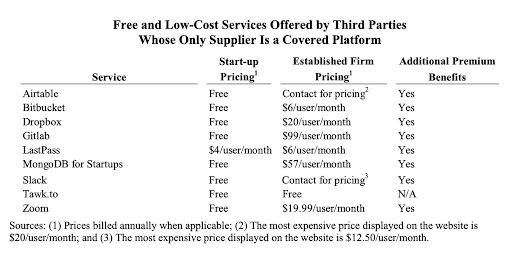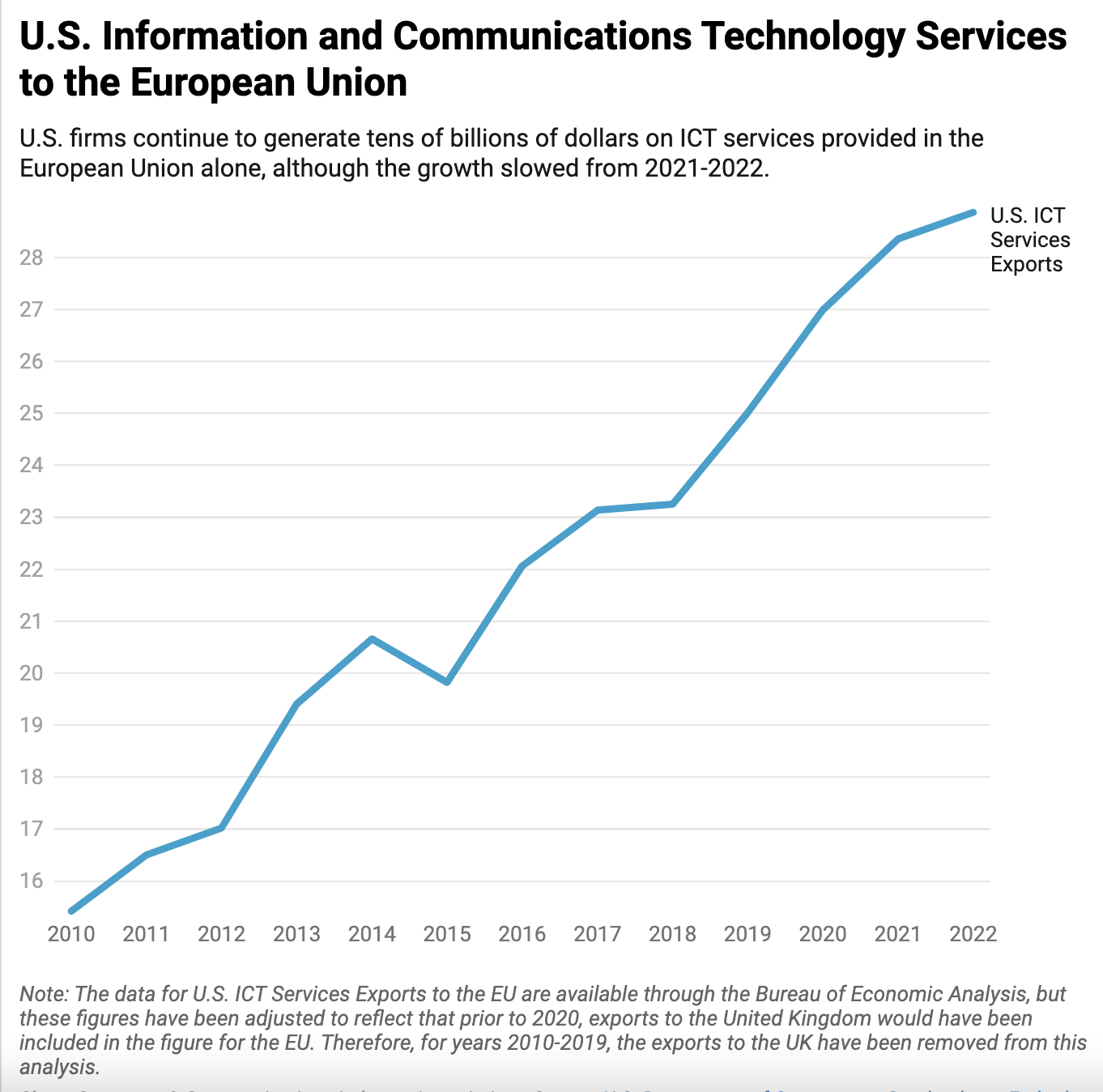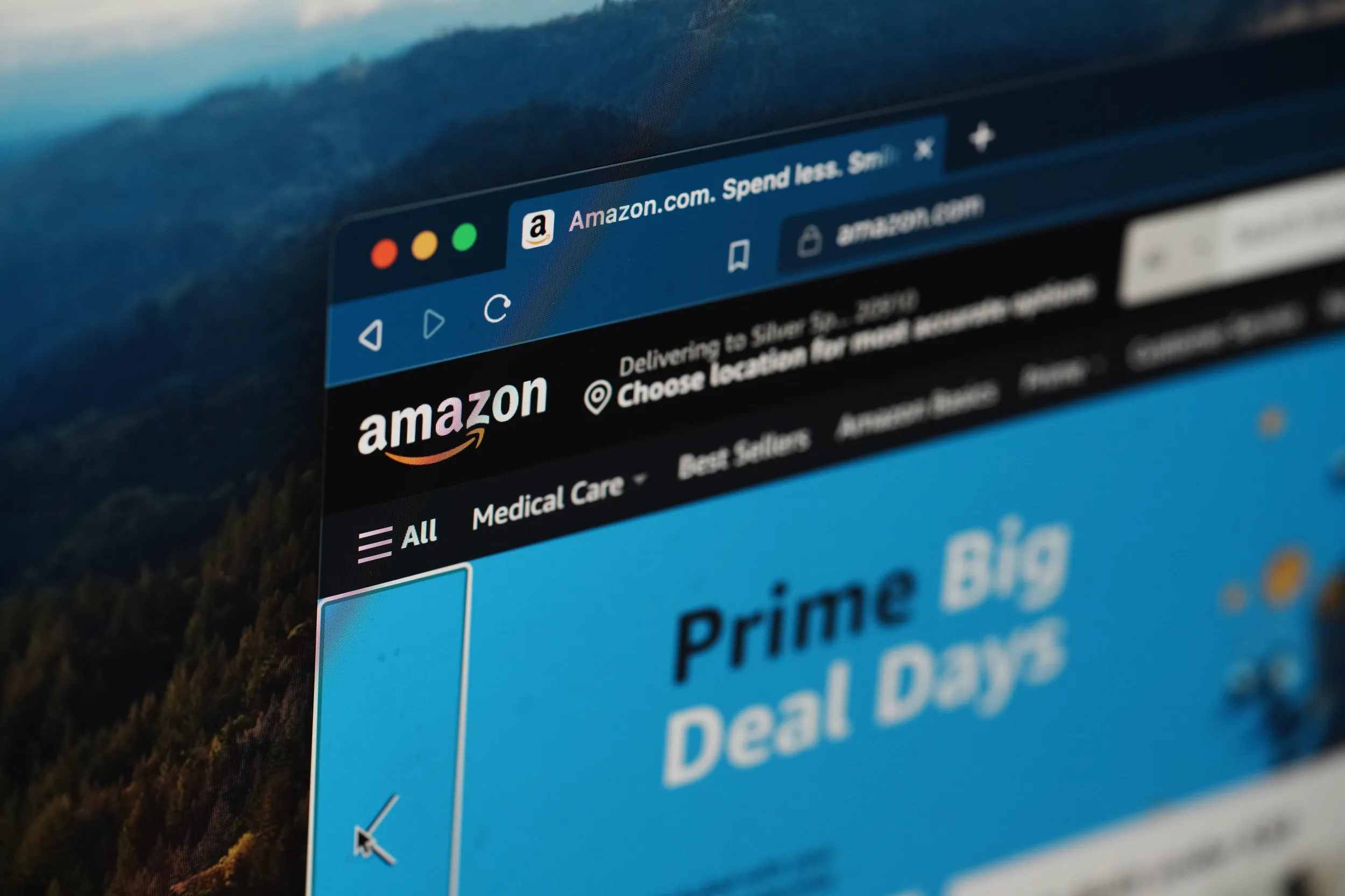Key Services for Startups and Small Businesses Jeopardized by Antitrust Bills

Antitrust bills like S. 2992 and H.R. 3816 would increase the operating costs of five targeted firms (Amazon, Apple, Google, Meta, and Microsoft) and force them to restructure, spin off, or discontinue many integrated services within their platforms. Startups and other small business users of impacted services would be first among the many users harmed by these developments. Startups and small businesses are purportedly the intended beneficiaries of these bills, but would face the loss of a key part of the ecosystem in which they thrive: a wide array of free and low-cost services provided directly or indirectly by the five targeted firms that allow startups and small businesses to reach up to millions of customers at minimal cost. Many of these services are offered at free or discounted rates for startups and small businesses.
Startups and small businesses would face incremental costs from the loss of integrated online platforms and marketplaces that allow them to run their business operations and even generate revenue without incurring higher sales, marketing, and advertising costs that would otherwise be required to connect to consumers.
The bills would increase costs for startups and small businesses due to the loss of free and low-cost services currently provided directly by the five firms likely to be regulated as “covered platforms” under the bills or by other third-party firms for which one of these five firms is a supplier. An example is cloud-based data storage provided to startup firms at reduced cost by cloud-based storage providers, including AWS (Amazon), Microsoft Azure (Microsoft), Google Cloud Platform (Google), and additionally third-party value-added resellers that purchase their cloud services from one of these three companies.
Free and low-cost products and services directly offered to startups and small businesses by the targeted firms include, non-exhaustively, those shown for illustrative purposes in the table above. Under the proposed bills, these products and services would either no longer be offered or must necessarily be offered at a price point under which the relevant line of business would be independently profitable. At such a price point, many of these products and services would be unaffordable to startups.
Many other free and low-cost products and services are offered to startups by third-party providers that rely solely on one of the five covered platforms for the upstream provision of the necessary inputs to provision their services, some of which are shown in the table above. For example, MongoDB is a data platform for mobile apps and offers its services free of charge to startups. However, MongoDB hosts its platform on the Google cloud platform and derives value for its customers by seamlessly connecting to numerous Google services. Under the proposed bills, Google’s business relationship would change, and this would likely prevent MongoDB from offering its services free of charge to startups. Similar partnerships between the covered platforms and the listed third-party service providers would be affected, and each would lead to higher prices and reduced services for budget-constrained startup firms.
In the simplest model, where startups were forced to shift to current market alternatives, startups could incur costs of up to $3,000 per employee each year. For a startup with 10 employees, an increase in operating costs of up to $30,000 per year could dramatically shorten their funding runway and force them to make difficult decisions.










